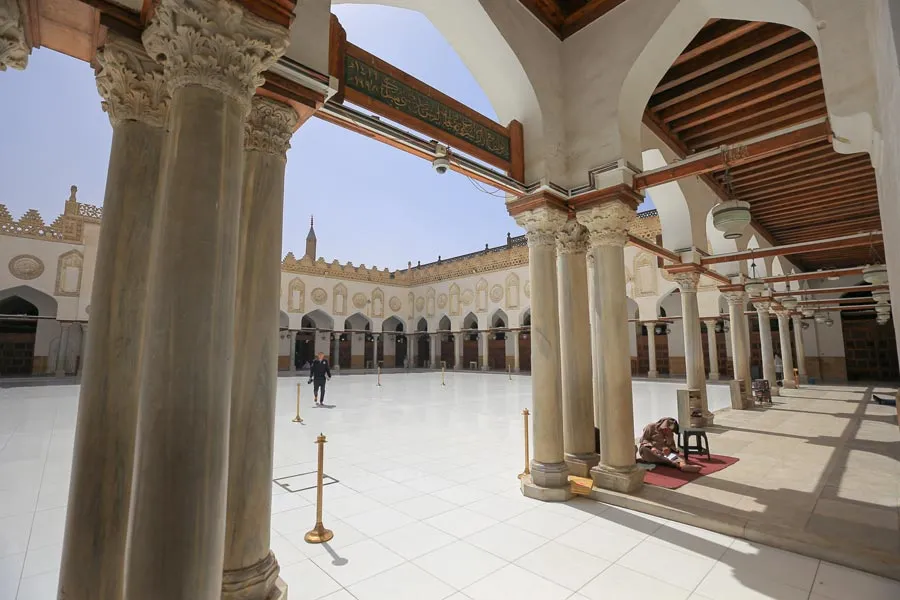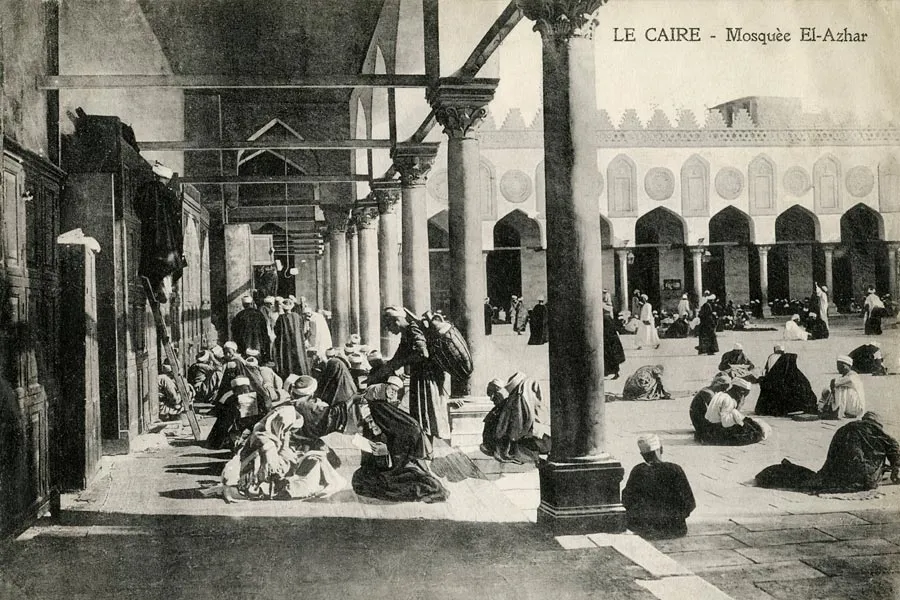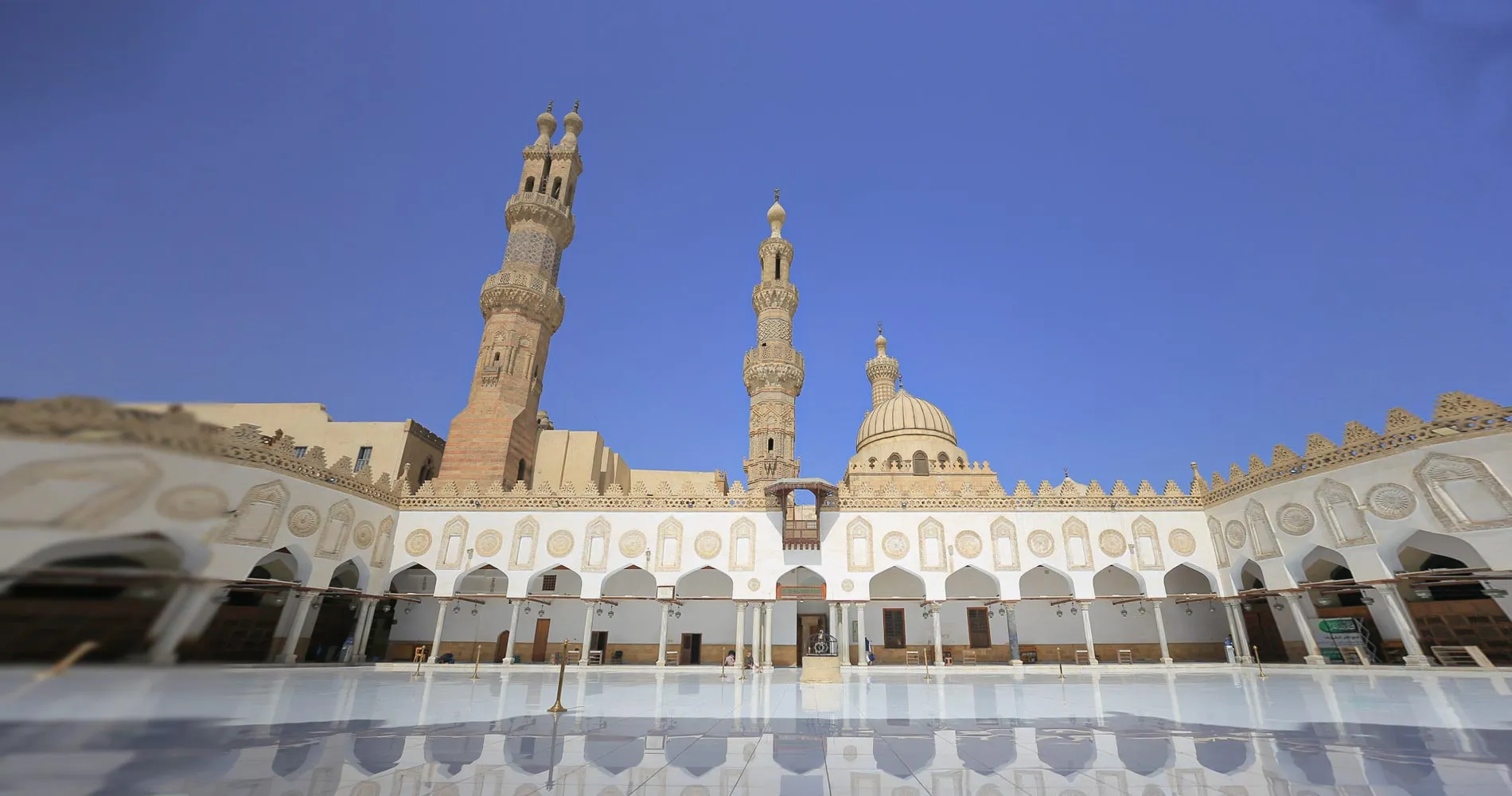In the aftermath of the Arab Spring, the trajectory of Islamist groups utilizing extremist interpretations of religion for sociopolitical objectives has undergone a profound transformation, marked by a temporary rise of influence and a subsequent fall. This was followed by a renewed commitment to the Ash’ari creed, particularly in Egypt, Tunisia, and Morocco. Ashari emphasized the separation of politics and religion. Ash’arism’s historical roots and theological tenets, alongside the context of the Arab uprisings, can provide gainful insights into the reasons behind this transformation.
Aly Mahmoud
8 April 2024
French version
During the Arab Spring, which unfolded in 2011, radical Islamist groups experienced a surge in political influence, profiting from widespread discontent and political unrest to advance their ideas, including the rejection of secularism and the application of Takfir (Arabic for “charging with unbelief”) to label other Muslims, a stance adopted by extremists pronouncing that someone is a Kafir (Arabic for “unbeliever”). Economic and societal injustice was blamed on the deviation from “true Islam,” and an extremist approach was presented as a new solution in the wake of the revolution.
As Islamist groups gained influence, major Islamic educational institutions, such as Al-Azhar Al-Sharif in Egypt, Zaytouna in Tunisia, and Al-Qarawiyyin Mosque in Morocco, came under scrutiny and pressure. These institutions, grounded in the Ash’ari creed, clashed with emerging political groups, sparking debates within religious circles regarding the proper role of religion in governance and society. Consequently, this led to attempts to exert control over these institutions, aiming to dominate them and prevent any statements or actions that could weaken their popularity and credibility, thereby leading to a temporary withdrawal of influence of these religious institutions.
 Al-Azhar Al-Sharif Mosque in Cairo Egypt today.
Al-Azhar Al-Sharif Mosque in Cairo Egypt today.
 Al-Azhar Mosque, Cairo. The Al-Azhar mosque was built in 970 in the then newly established capital. French postcard, printed by the Cairo Postcard Trust, Cairo. © IMAGO / Bridgeman Images
Al-Azhar Mosque, Cairo. The Al-Azhar mosque was built in 970 in the then newly established capital. French postcard, printed by the Cairo Postcard Trust, Cairo. © IMAGO / Bridgeman Images
Albeit the broad consensus among Muslim scholars and society that Islamists represent a deviated form of Islamic thought, the increase of political influence of those groups has put pressure on the Ash’ari creed, thereby pushing out Ash’ari influence and scholars.
Historically, the Ash’ari creed can be traced back to Abu al-Ḥasan al-Ashʿari, a prominent Muslim theologian of the 10th century. It emerged in response to the extreme rationalism of the Al Mu’tazilah creed. Unlike schools of jurisprudence, i.e., the Hanafi, Maliki, Hanbali, and Shafi’i schools, Ash’arism focuses on doctrinal principles, providing a framework that combines stability and flexibility while preserving Islamic teachings.
Endorsed by prominent Sunni scholars and schools, Ash’arism is characterized by the combination of reason and tradition in interpreting and substantiating beliefs. It derives its understanding primarily from the Quran and the Sunnah, employing theological principles in its interpretation. In cases of conflict between reason and tradition, reason is given precedence. This approach to theology provides a framework for reconciling religious beliefs with modern governance. Over time, Ash’arism became the predominant school of theological thought within Sunnī Islam.
The decline of radical Islamist groups in Egypt, Tunisia, and Morocco following the Arab Spring can be attributed to various factors. While governance shortcomings and political divisions played a role, the decline signifies more than mere political dynamics. It reflects a renewed shift within Muslim societies, driven by a collective rejection of the politicization of Islam. This awakening also involves a firm repudiation of fundamentalist interpretations of Islamic doctrines, which were tainted by the proliferation of fanaticism and extremist ideologies.
The discontent stemming from the implementation of fundamental ideologies spurred a re-evaluation, prompting a resurgence of the core principles of Islam, as embodied by the Ash’ari doctrine, which has prevailed for centuries and has historically championed an understanding of Islam that emphasizes rationality and rejects the politicization of religious ideology principles. As a result, the rejection of radical Islamist ideas paved the way for a renewed interest in the Ash’ari school of thought.
In response to the resurgence of interest in Ash’arism, various institutions emerged to promote and support Ash’arism’s teachings. Examples include global initiatives and conferences sponsored by the high Islamic council in Morocco aiming to spread Ash’ari principles in Africa, as well as the Imam Al-Ash’ari Centre in Egypt, established in 2017. This center for intellectual discourse, theological education, and the dissemination of Ash’ari thought both locally and globally aims to foster the understanding of Islam that reconciles faith with reason.
Telegram neu

Follow us on Telegram
According to a statement issued on 30 August 2016 by the Al-Azhar Media Center, most of the Sunni Muslims, representing 90% of Muslims, now adopt the Ash’ari creed. One explanation for this is that Ash’arism does not support radical beliefs like the Takfir doctrine and is appreciated by conservative Muslims worried about being excluded by extremist groups. Additionally, for Muslims trying to blend their faith with modern life, Ash’arism provides a way to honor tradition while using logic.
The resurgence of Ash’arism following the Arab Spring marks a pivotal shift in the landscape of political Islam, signaling a decisive rejection of ideologies exploiting religion for political gain in favor of a return to the tenets of Islam upheld by the Ash’ari creed. With esteemed Islamic schools championing tradition and rationality, the resurgence of radical Islamist parties will encounter significant hurdles in the foreseeable future in Egypt, Tunisia, and Morocco.






